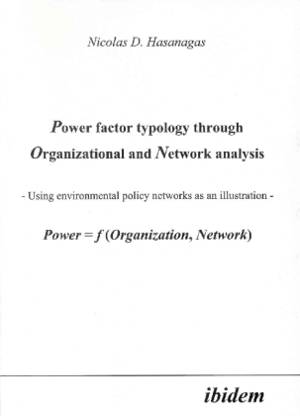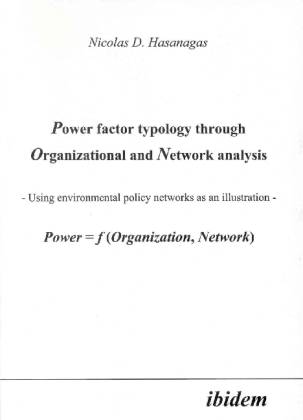
- Afhalen na 1 uur in een winkel met voorraad
- Gratis thuislevering in België vanaf € 30
- Ruim aanbod met 7 miljoen producten
- Afhalen na 1 uur in een winkel met voorraad
- Gratis thuislevering in België vanaf € 30
- Ruim aanbod met 7 miljoen producten
Zoeken
Power factor typology through Organizational and Network analysis
Using environmental policy networks as an illustration
Nikolaos Hasanagas
Paperback | Engels
€ 26,45
+ 52 punten
Omschrijving
Who can be powerful and when? Power is a function of network and organizational characteristics and therefore denies an actor (e.g. a NGO or trade union) to be powerful in all networks. To prove this idea, power and institutional theories as well as organizational models will come into use while proposing different types of power factors. Such factors include combinations of organizational and network characteristics that combine to produce high power synergy and low inconsistency. The first dimension of power is trust: the trustee leads the one who trusts. The second dimension is financial incentive: the gift giver influences the gift receiver. The third dimension is irreplaceability. The typology of power factors (organizational and network characteristics) was derived from both inductive and deductive processes. By using statistics-based vector algebra as a basis for the methodology, a survey covering 12 environmental policy networks in 8 European countries was conducted and more knowledge on power was obtained.
Specificaties
Betrokkenen
- Auteur(s):
- Uitgeverij:
Inhoud
- Aantal bladzijden:
- 162
- Taal:
- Engels
Eigenschappen
- Productcode (EAN):
- 9783898213868
- Uitvoering:
- Paperback
- Afmetingen:
- 210

Alleen bij Standaard Boekhandel
+ 52 punten op je klantenkaart van Standaard Boekhandel
Beoordelingen
We publiceren alleen reviews die voldoen aan de voorwaarden voor reviews. Bekijk onze voorwaarden voor reviews.











